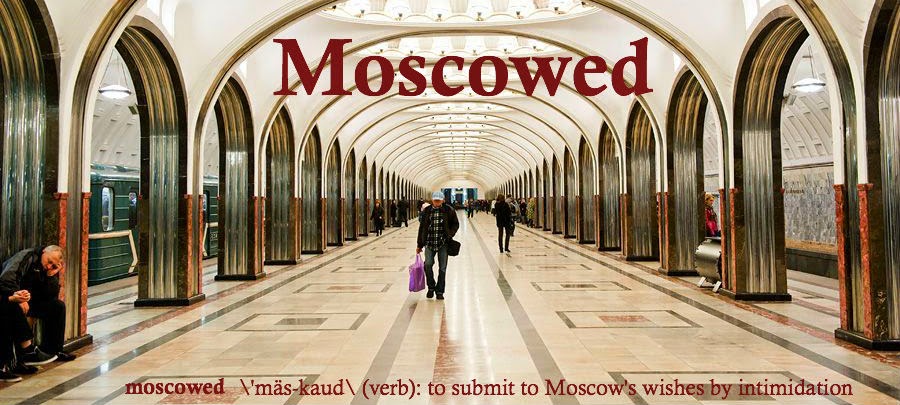The mood in Russia has been shifting lately. It doesn’t feel the same as it did when I studied abroad here in 2005 and it doesn’t feel the same as it did when I moved here last September. There’s been a marked upsurge in nationalism this year, and more of an “us against them” mentality in the media. About a week ago, a former Stanford professor of mine said, “It’s one thing to be a ‘witness to history’ and quite another to survive it.”
I was surprised by his warning—it sounded more like something my parents would say than the words of a man who has been frequenting Russia since long before it ceased to be the Soviet Union. I chalked it up to professorial concern and the power of Western propaganda, and promptly forgot about it. But on Friday night when Dima returned to the apartment, his eyes were glued to his iPhone as he announced, “They killed Nemtsov.”
Liz and I looked at him blankly. “Who’s Nemtsov?”
“Oppozitsiya,” Dima said. “An opposition leader. They shot him just 30 meters from the Kremlin.”
For those of us who didn’t know who Nemtsov was before Friday, he’s quickly become a household name. He was First Deputy Prime Minister under Yeltsin, and later an outspoken critic of Putin. And on Friday, he was shot to death in the middle of Moscow.
A march was organized to honor Nemtsov on Sunday—one which I was curious to see, but didn’t feel it was my place to join. Instead, I met friends for brunch and planned to hole up in a café for the afternoon with some freelance work and my laptop. As our brunch stretched into its fifth hour and day faded into dusk, we noticed a steady stream of people moving down Pyatnitskaya Street outside. There were people of all ages, many carrying signs and holding Russia’s red, white, and blue flag. Until then, I had forgotten that the café we had chosen, located near the Novokuznetskaya metro station, was just across the Moskvoretsky Bridge where Nemtsov was murdered.
As my friends and I headed to the metro, we merged with the mass of people finishing the memorial march. Though the procession was over, people still held signs with messages like “There are no words” and “I am not afraid.” Though I am not afraid of Russia, per se, the need for signs like that are a strong reminder that something seems to be brewing. Maybe it’s my perspective as a Westerner, but I have a slightly unsettled feeling—not unlike the one I had in Gatchina this summer when I heard about Malaysia Airlines Flight 17 getting shot down or when I was in Siberia during the annexation of Crimea. Perhaps all this will blow over, but past lessons would lead me to believe otherwise. Russian history has always had a flair for the dramatic, a fact which my former professor has so wisely remembered.
I was surprised by his warning—it sounded more like something my parents would say than the words of a man who has been frequenting Russia since long before it ceased to be the Soviet Union. I chalked it up to professorial concern and the power of Western propaganda, and promptly forgot about it. But on Friday night when Dima returned to the apartment, his eyes were glued to his iPhone as he announced, “They killed Nemtsov.”
Liz and I looked at him blankly. “Who’s Nemtsov?”
“Oppozitsiya,” Dima said. “An opposition leader. They shot him just 30 meters from the Kremlin.”
For those of us who didn’t know who Nemtsov was before Friday, he’s quickly become a household name. He was First Deputy Prime Minister under Yeltsin, and later an outspoken critic of Putin. And on Friday, he was shot to death in the middle of Moscow.
A march was organized to honor Nemtsov on Sunday—one which I was curious to see, but didn’t feel it was my place to join. Instead, I met friends for brunch and planned to hole up in a café for the afternoon with some freelance work and my laptop. As our brunch stretched into its fifth hour and day faded into dusk, we noticed a steady stream of people moving down Pyatnitskaya Street outside. There were people of all ages, many carrying signs and holding Russia’s red, white, and blue flag. Until then, I had forgotten that the café we had chosen, located near the Novokuznetskaya metro station, was just across the Moskvoretsky Bridge where Nemtsov was murdered.
As my friends and I headed to the metro, we merged with the mass of people finishing the memorial march. Though the procession was over, people still held signs with messages like “There are no words” and “I am not afraid.” Though I am not afraid of Russia, per se, the need for signs like that are a strong reminder that something seems to be brewing. Maybe it’s my perspective as a Westerner, but I have a slightly unsettled feeling—not unlike the one I had in Gatchina this summer when I heard about Malaysia Airlines Flight 17 getting shot down or when I was in Siberia during the annexation of Crimea. Perhaps all this will blow over, but past lessons would lead me to believe otherwise. Russian history has always had a flair for the dramatic, a fact which my former professor has so wisely remembered.

Be dilligent in working on your novel. Finish it as soon as you can Don't pull your head out of the sand until you leave Russia. If you really knew what was going on, you wouldn't just have a slightly unsettled feeling. You would be terrified.
ReplyDelete